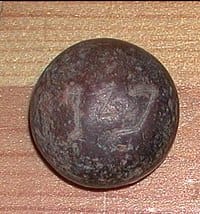Shmuel I Chapter 13 | Philistines Gather at Mikhmas
The story of Sha’ul’s impatience seems excessive at first glance. Shmuel is late, so Sha’ul offers the sacrifices before his arrival, for which he receives a severe punishment: "Now your dynasty will not endure." What’s the significance of going down to Gilgal and waiting for Shmuel’s arrival?
Shmuel instructed Sha’ul to go to Gilgal in their first encounter: "You shall go down before me to Gilgal - I will soon come down to you to offer up burnt offerings and to sacrifice peace offerings. Wait for seven days until I come to you; then I will inform you on what you are to do" (10:8). After Yonatan strikes the Philistine governor at Mikhmas, Sha’ul waits in Gilgal, while the Philistines amass at Mikhmas: "וּפְלִשְׁתִּים נֶאֶסְפוּ לְהִלָּחֵם עִם יִשְׂרָאֵל שְׁלֹשִׁים אֶלֶף רֶכֶב וְשֵׁשֶׁת אֲלָפִים פָּרָשִׁים וְעָם כַּחוֹל אֲשֶׁר עַל שְׂפַת הַיָּם לָרֹב וַיַּעֲלוּ וַיַּחֲנוּ בְמִכְמָשׂ קִדְמַת בֵּית אָוֶן".
On a literary level, one can note the emphasis on the descent and ascent, and on a practical level, the location of the assembly points for the soldiers is highly significant for understanding the story. Throughout the Book of Shmuel, we read about several battles between Israel and the Philistines, where the location of the battle indicates the position of the front line and, consequently, the military situation at that time. Battles close to the coastal plain favor Israel, whereas battles where the Philistines draw near to the highlands, provides Israel with a weaker position.
Mikhmas, with an altitude of 600 meters, is on a ridge, while Gilgal, farther east, is only 300 meters high. Thus, the withdrawal from Mikhmas, allowing the Philistines to regain the high ground, is almost suicidal. The retreat from Mikhmas to Gilgal enables the Philistines to press forward, making the battlefield less favorable to Israel and demoralizing the troops.
Adding to this is the moral frustration the people feel as they realize that with each passing day, it will become harder to reclaim the territory. This, combined with the loss of momentum and the retreat of soldiers from the battlefield, places Sha’ul in a severe crisis. He is committed to Shmuel's words but understands that, from a military standpoint, victory is simply beyond his reach.
This may be the exact test: Israel thought a king would free them from reliance on God, but the first victory over the Philistines was meant to be miraculous — just like the victory at Yericho.
However, just as Israel wrongly relied on the supernatural rather than God in their first Philistine battle, here, instead of relying on God, they trust in their swords. It is neither the sword nor the supernatural that will determine the outcome, but obedience to God’s command.
You can find the different locations mentioned in our chapter in the following map (from Herzog's Tanakh website).

Archaeology in the Chapter – Pim: Commentators have speculated about the unique biblical term “pim,” which appears in this chapter: "The sharpening fee was a pim for plowshares." Archaeologists discovered a weight inscribed with the word “pim,” (see picture here) weighing two-thirds of a shekel. The term likely comes from the phrase "פי שניים", meaning two parts (out of three), which also helps explain Elisha’s daring request from Eliyahu for “פי שניים ברוחך אלי”. In biblical Hebrew, unlike modern Hebrew, “פי שניים” referred to two-thirds.
This lesson is dedicated to Zeev Hanoch Ehrlich, an archaeologist by profession, who was killed yesterday in an incident with the Golani Brigade in Lebanon. Yehi zikhro barukh.


This website is constantly being improved. We would appreciate hearing from you. Questions and comments on the classes are welcome, as is help in tagging, categorizing, and creating brief summaries of the classes. Thank you for being part of the Torat Har Etzion community!